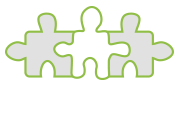Autism 101
Autism Facts
- Autism affects 1 in 68 children.
- Boys are 4 times more likely to have autism than girls.
- About 40% of children with autism do not speak. About 25%-30% of children with autism have some words at 12-18 months of age and then lose them. Others might speak but not until late in childhood.
- Autism greatly varies from person to person (no two people with autism are alike).
- Autism is the fastest growing developmental disorder, yet most underfunded.
- Children with autism do progress. Early intervention is key.
- Autism is treatable, it's not a hopeless condition.
* Sources taken from: National Autism Association & Wikipedia
